A CMS for e-commerce, or content management system, is a tool that helps you build and run an online store without needing to code everything by hand. It lets you add products, update prices, write blog posts, and manage your site’s layout — all from one dashboard.
People use e-commerce CMS platforms to save time, stay organized, and make sure customers can easily browse and buy products. An e-commerce management system is a smart way for businesses of any size to sell online without getting lost in technical details.

Top E-commerce CMS Platforms of 2025
Choosing the right e-commerce CMS is one of the most important decisions when you’re starting an online store. Some platforms are simple and great for beginners, while others are packed with tools for bigger businesses that need more options. Each platform has its own style, benefits, and a few downsides. If setting everything up feels overwhelming, you can always look into outsourcing web development services to help you get started faster and avoid mistakes.
1. Shopify
Shopify is one of the best CMS for e-commerce. It’s built especially for selling products online, and everything you need is already included. Shopify lets you build a full online store from start to finish without touching a line of code. You can pick from dozens of clean, professional design templates that work on phones and computers.

Why Use It: Shopify is a smart choice if you want to start selling quickly and focus more on your products than the technical side. Whether you’re selling just a few handmade items or planning a full fashion line, Shopify can grow with you. Its tools are made to help you scale up easily as your business gets bigger. It’s especially suitable for individuals who prioritize reliability and prefer not to hire developers every time they need to make a change.
Pros:
- Very easy to set up
- Many professional-looking themes
- Great app store for extra features
- Strong customer support
Cons:
- Monthly fees can get expensive as you grow
- Customization can be limited without extra costs
2. WooCommerce
WooCommerce is a free plugin that turns a WordPress website into an online store. It’s very popular because of how flexible it is. WooCommerce transforms a regular WordPress site into a full online shop where you can sell anything — physical products, digital downloads, subscriptions, bookings, website personalization, and more. You can add unlimited products, set up different payment methods, create shipping zones, and offer coupons and discounts.
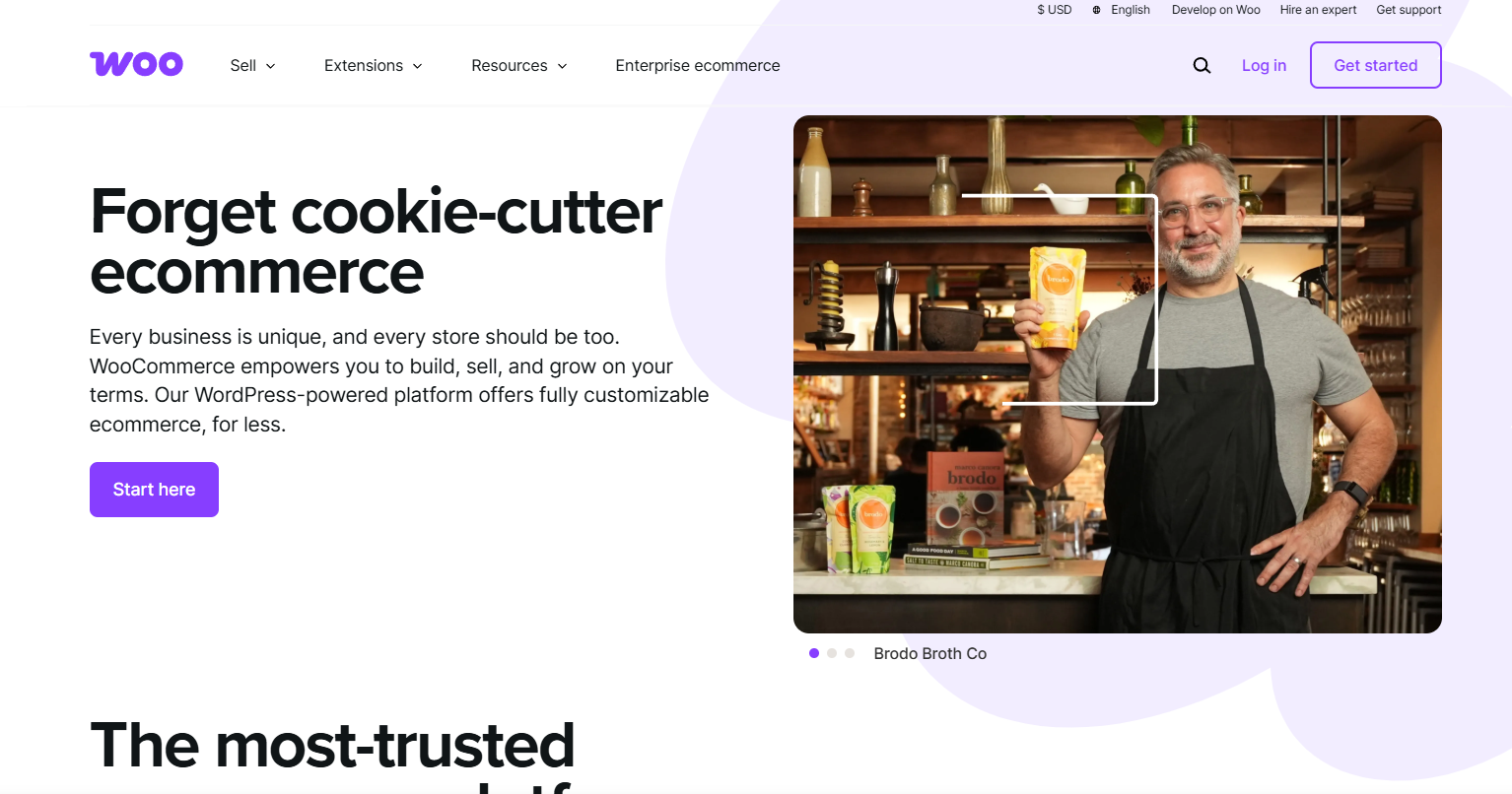
Why Use It: WooCommerce is a great choice if you already have experience with WordPress or if you want more control over every detail of your store. It’s also a good fit for people who like to tweak and fine-tune their site. Unlike platforms that charge monthly fees, WooCommerce lets you choose your own hosting and keep costs low if you want. It’s ideal if you want to build a store that feels fully yours, with no limits on design or functionality.
Pros:
- Free to start
- Fully customizable
- Big community for support
- Tons of add-ons and plugins
Cons:
- Needs regular maintenance and updates
- Some important features require paid add-ons
3. BigCommerce
BigCommerce is one of the best CMS for e-commerce websites that want to grow quickly. It offers many built-in tools for selling, marketing, and managing products. BigCommerce lets you create a professional online store with strong tools already built in. You can manage inventory, accept all major payments, set up different shipping methods, and even connect your store to Amazon, eBay, and social media marketplaces.

Why Use It: BigCommerce is a great option if you’re building a store that needs to grow fast without technical problems getting in the way. It gives you powerful tools without needing dozens of apps or custom coding. It’s made for people who are serious about growth and don’t want to feel trapped by small starter platforms later.
Pros:
- No transaction fees
- Good marketing and SEO tools
- Integrates with Amazon, eBay, Facebook
Cons:
- Pricing plans are higher than those of many competitors
- Limited free theme options
4. Magento (Adobe Commerce)
Magento is one of the most powerful CMS for e-commerce out there. It’s used by big brands and stores with complex needs. Magento gives you full control to build whatever kind of online store you want. It supports unlimited products, different store languages, multiple currencies, and complex product catalogs. You can create highly customized checkout processes, loyalty programs, and customer dashboards.
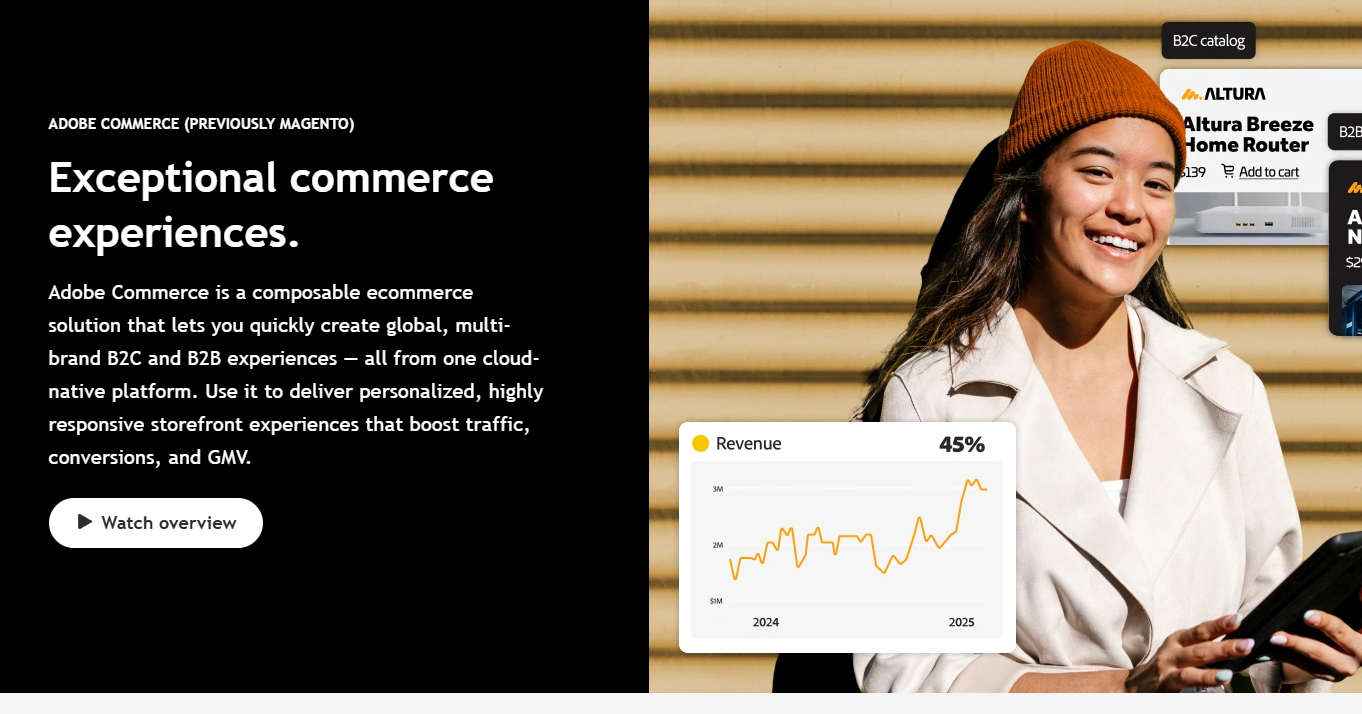
Why Use It: Magento is perfect if you want a custom, high-end online store and have the team (or budget) to support it. It’s not a plug-and-play option for beginners, but for large businesses or growing brands with specific needs, it’s one of the strongest choices out there. Magento shines when you want to offer a complex buying experience that cheaper platforms simply can’t deliver.
Pros:
- Endless customization options
- Handles thousands of products
- Very strong security
Cons:
- Hard to set up without technical knowledge
- Hosting and maintenance can be expensive
5. Wix e-commerce
Wix is known for helping people build beautiful websites. Its e-commerce features are simple but powerful enough for small to medium stores. Wix lets you build a full online store using a drag-and-drop editor that shows you exactly what your site will look like as you build it.
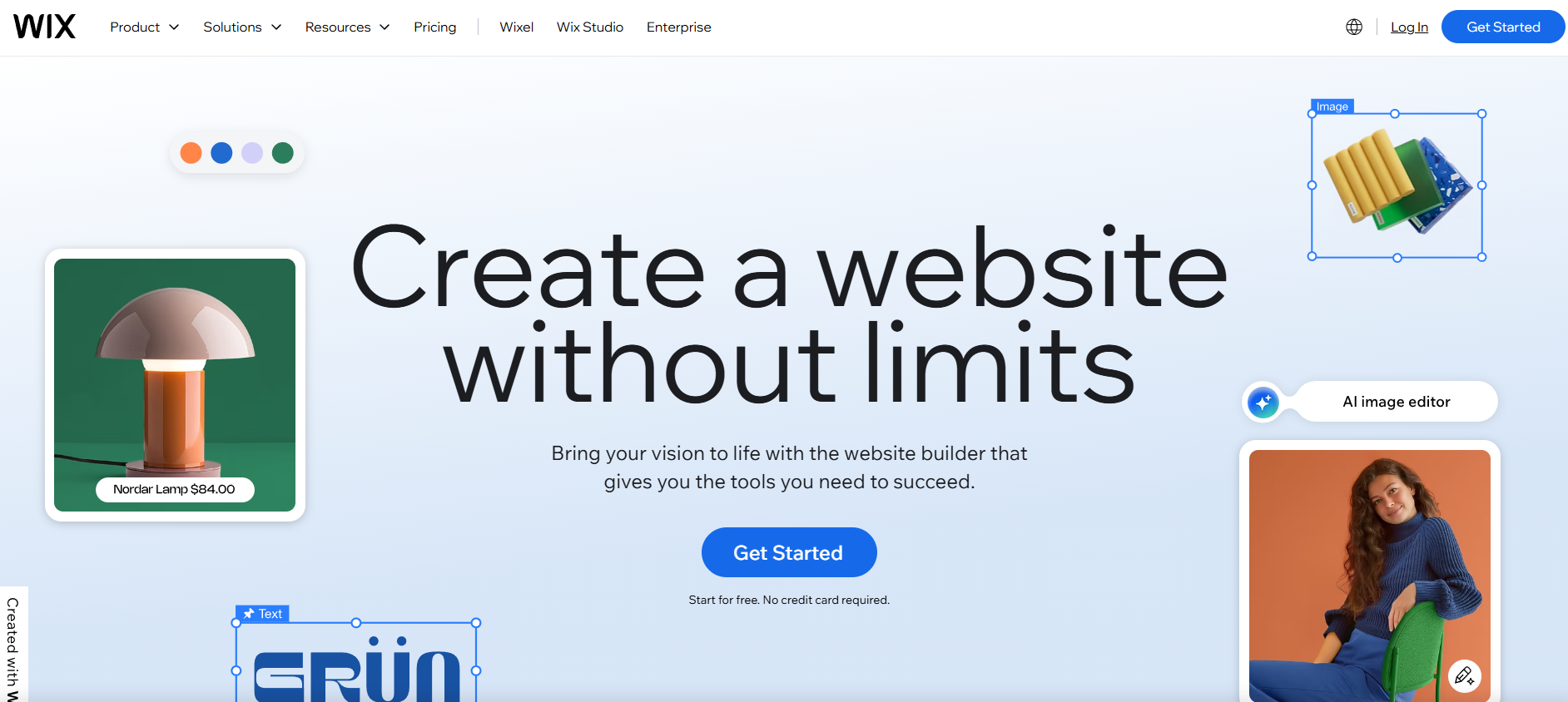
Why Use It: Wix e-commerce is a good fit if you care about how your store looks but don’t want to spend weeks learning a complex system. It’s great for boutique shops, service businesses, or artists who want an easy way to sell online. You’ll be able to set up and run a beautiful store without hiring a developer. It’s ideal for anyone who wants a low-stress experience from day one.
Pros:
- Easy drag-and-drop editor
- Good-looking templates
- Built-in email marketing
Cons:
- Limited options for very large stores
- Extra apps can add to the cost
6. Squarespace Commerce
Squarespace is famous for its clean, stylish templates. It now offers strong tools for selling products, too. Squarespace Commerce lets you create a beautiful online store where you can sell physical products, digital downloads, and even services like coaching or design work. It gives you easy ways to manage inventory, accept credit card payments, set shipping rates, and send automatic order confirmations to customers.
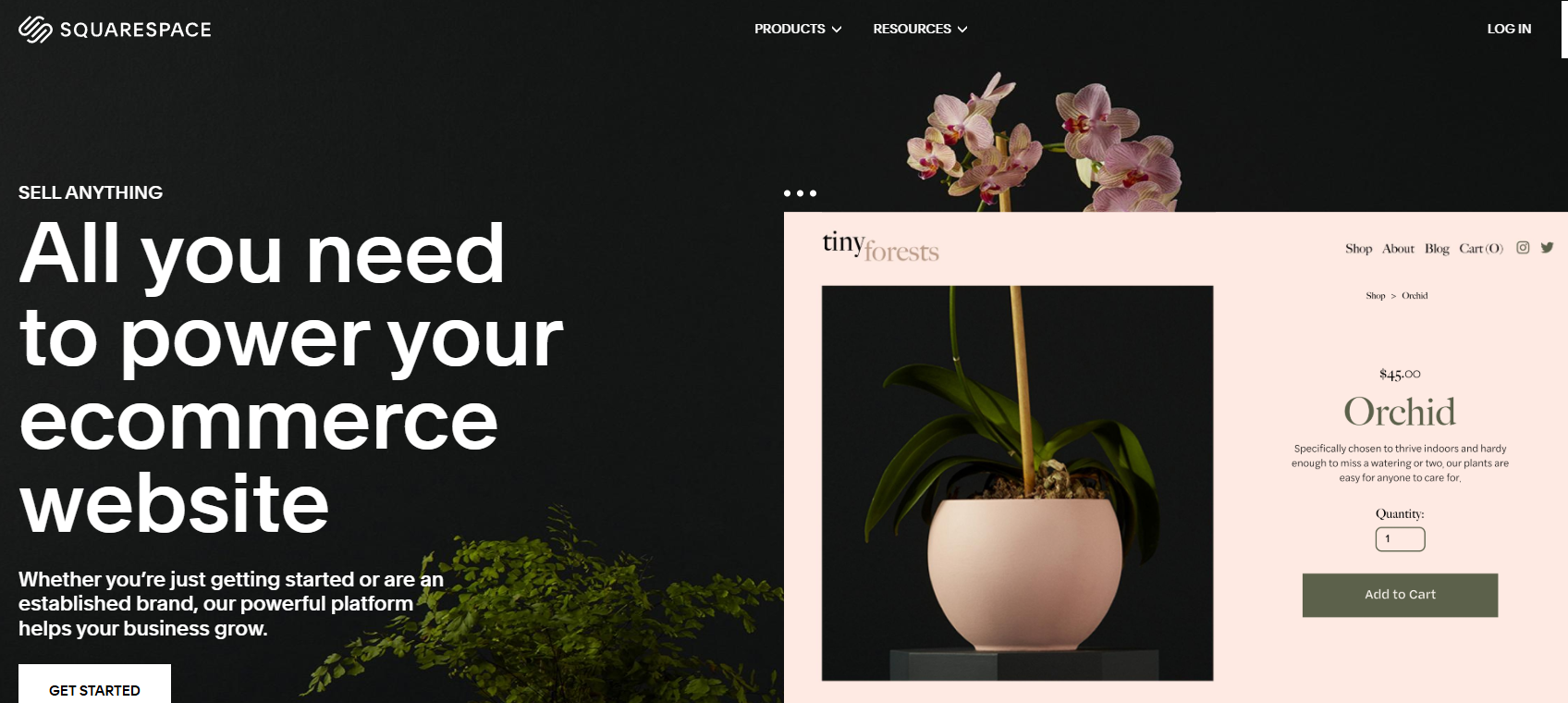
Why Use It: Squarespace is a great choice if you care about design and want your store to look polished right from the start. It’s perfect for photographers, artists, service providers, and brands that want a high-end look without paying for a web designer. If you’re selling fewer products and want a clean, professional image without getting into complicated setups, Squarespace makes it very easy.
Pros:
- Beautiful templates
- Easy inventory management
- Built-in payment and shipping tools
Cons:
- Fewer payment options than some competitors
- Limited customization for larger shops
7. PrestaShop
PrestaShop is a free e-commerce CMS. That means you can download it for free and customize it as much as you want. PrestaShop gives you full control to build an online store with as many products, categories, and features as you need. You can manage shipping, create product bundles, add discounts, and offer different payment methods.
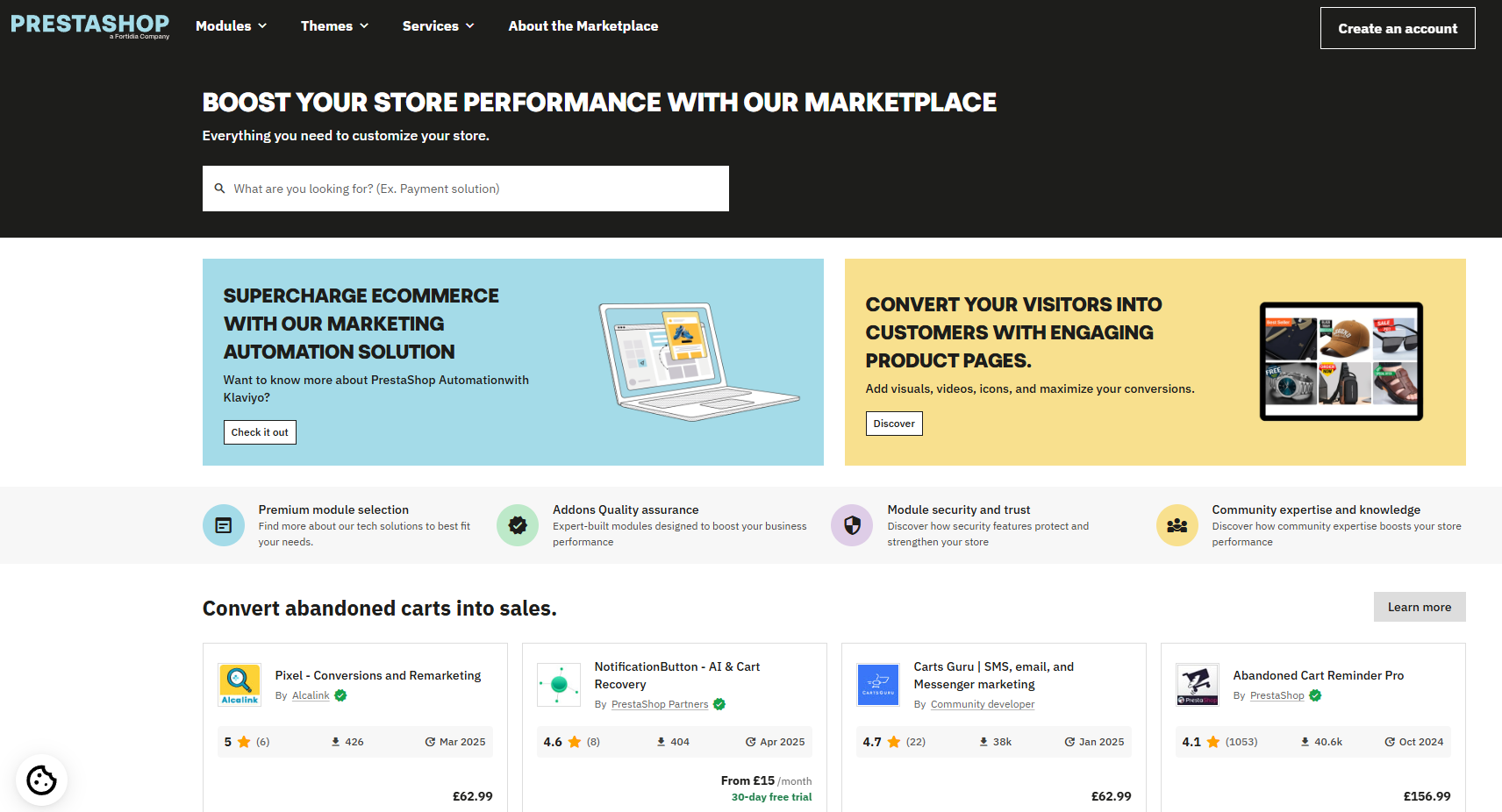
Why Use It: PrestaShop is a strong option if you want freedom but don’t want to pay monthly fees like you would with hosted platforms. You can build a very powerful, customized store without the high costs usually associated with bigger platforms like Magento. PrestaShop lets you grow at your own pace, making it a good choice for businesses that expect to expand over time.
Pros:
- Free to download
- Highly customizable
- Lots of modules and themes
Cons:
- Requires technical skills for setup
- Some modules cost extra
8. OpenCart
OpenCart is another open-source e-commerce CMS platform. It’s simpler than PrestaShop but still very flexible. OpenCart helps you create a lightweight online store where you can add products, manage orders, and accept payments from different providers. It offers many useful features right out of the box, like product reviews, discount codes, and multiple currency support. There are thousands of extensions you can add for marketing, shipping, analytics, and more.
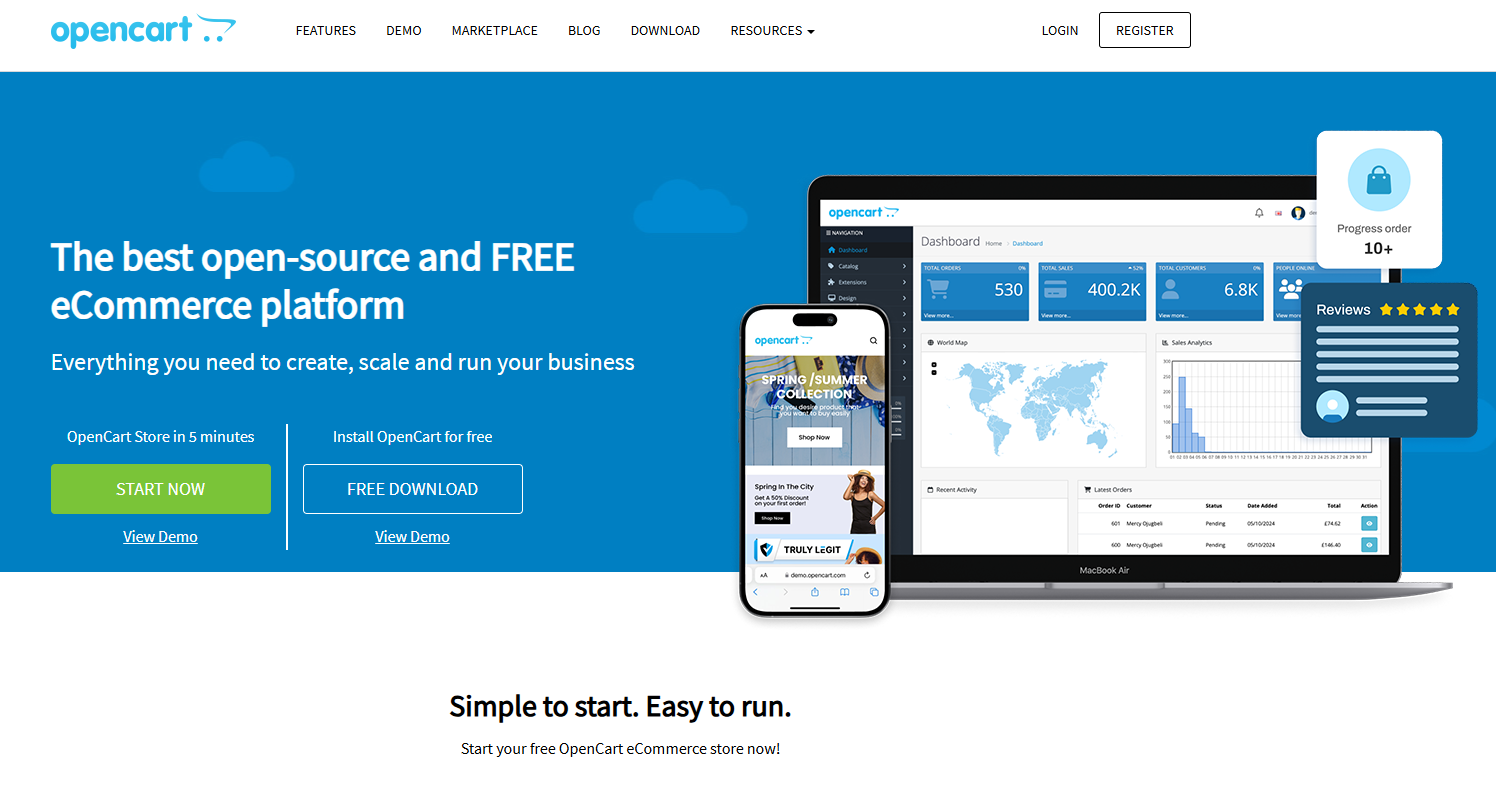
Why Use It: OpenCart is a great choice if you want the freedom of open-source software but don’t want something too complicated. It's easy enough for people with a little bit of tech experience to set up, and it’s flexible enough to grow with your business. It’s especially good for small to mid-sized shops that don’t want heavy systems slowing them down.
Pros:
- Free to use
- Simple and fast dashboard
- Lots of extensions
Cons:
- Limited built-in marketing tools
- Support is mostly paid
9. Ecwid
Ecwid is a bit different. It’s not a full CMS for e-commerce on its own. Instead, it lets you add a store to any website you already have. Ecwid is designed to be added to existing websites. It works with WordPress, Joomla, Wix, Weebly, and even Facebook and Instagram. Once added, you get a full-featured online store where you can sell physical products, digital downloads, and services. It handles payments, shipping, inventory, and tax settings.
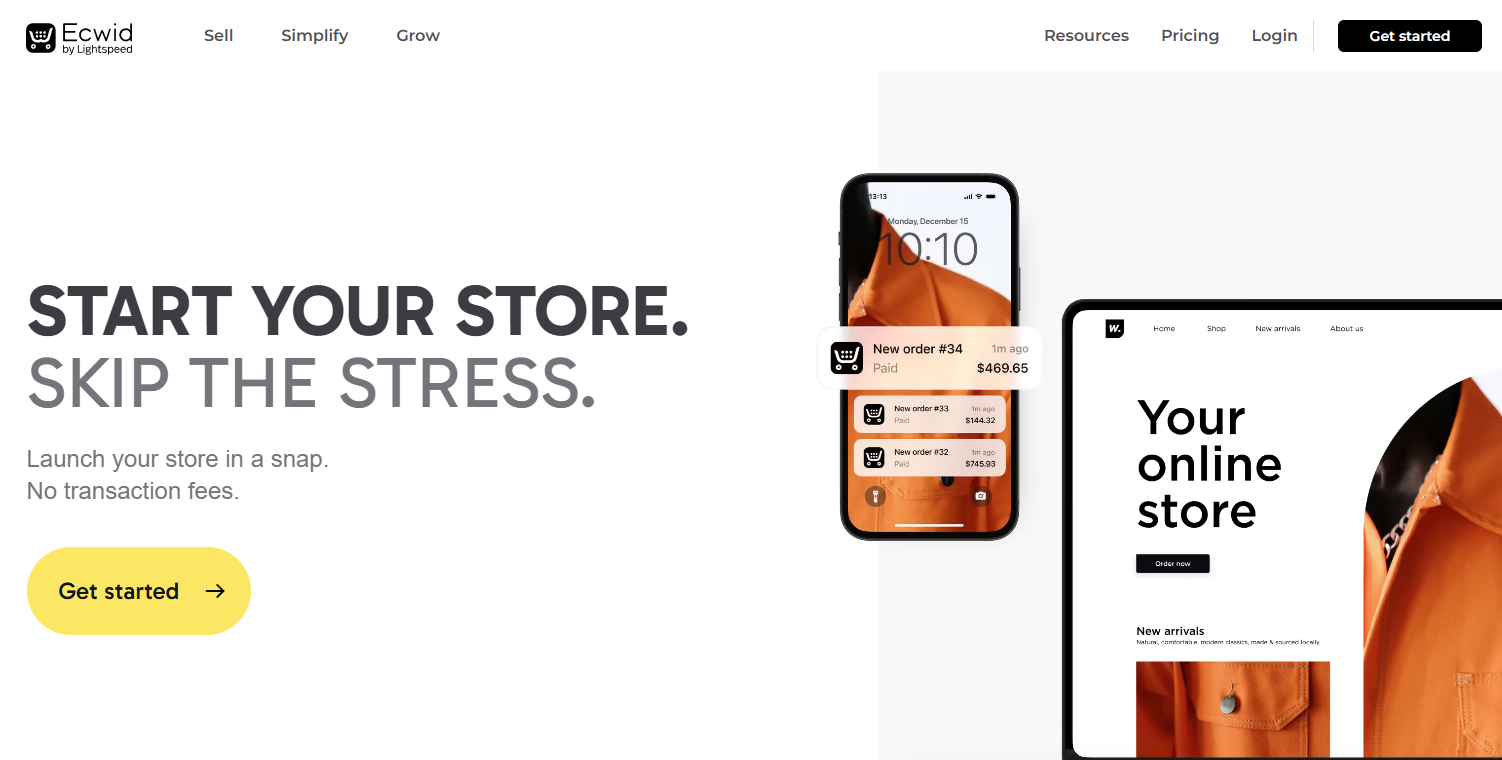
Why Use It: Ecwid is a smart choice if you already have a website you love and don't want to start over. Instead of building a new site from scratch, you simply add Ecwid to what you have and start selling. It’s also very easy to maintain, which is perfect if you don’t want to spend a lot of time managing a complicated system. For small businesses, bloggers, or service providers who want to add a shopping option quickly, Ecwid is a simple and affordable solution.
Pros:
- Works with many platforms
- Free plan available
- Easy to use
Cons:
- Limited design control
- Not ideal for very large stores
10. Sellfy
Sellfy is a simple platform for e-commerce made for creators, artists, and small businesses. It helps you sell digital products, subscriptions, and physical goods all from one place. Sellfy lets you set up a fully working online store in just a few minutes. You can upload digital products like ebooks, music, art, videos, or set up physical goods for sale. It also supports print-on-demand, allowing you to sell custom merchandise, such as t-shirts or mugs, without holding any stock yourself.

Why Use It: Sellfy is a great choice if you want to start selling fast and keep things easy. It’s perfect for creators who don't want to spend weeks building a website. You don’t need any coding skills, and everything important is already built in. If you want a clean store to sell your products and focus more on growing your audience, Sellfy is a smart and affordable option.
Pros:
- Easy setup for digital and physical products
- Built-in marketing tools
- Supports subscriptions and print-on-demand
Cons:
- Limited design customization
- Not ideal for large product catalogs
What to Look For When Choosing a CMS
Finding the right CMS in e-commerce is not just about picking the one with the prettiest templates. It’s about making sure the system fits your business today — and can still fit tomorrow when you grow. Some platforms are great for quick setups; others offer deeper control if you have bigger plans:
- Ease of use: Your CMS should feel easy and natural to use. If it’s too complicated, you’ll waste time or have to pay someone to manage it for you.
- Customization: As your store grows, you’ll want to change things. Pick a CMS platform that lets you tweak layouts, features, and functions without major headaches.
- Payment options: Customers expect different payment choices. Make sure the CMS you pick works with credit cards, PayPal, Stripe, and any other method you need.
- Design choices: A clean, professional design builds trust. Look for platforms that offer good templates and simple tools to make your store look polished.
- Marketing and SEO tools: Your store needs visitors to survive. Good SEO features and easy marketing integrations (like email tools) help you bring more people in.
- Costs: Nothing is ever completely free. Some platforms are cheap to start but cost more once you add features. Look at the full costs, not just the starting price.
Choosing the right CMS for the marketplace can save you a lot of trouble later. Think about where your business is today, where you want it to be in a year, and what you are willing to learn along the way.
Back to the top
The answers to your questions
What is CMS in e-commerce?
A CMS in e-commerce is a tool that helps you build and manage an online store. It lets you add products, change prices, post blogs, and design your site without needing to code everything. With a CMS, you control the content and layout of your shop in one place. It makes running an online business much simpler.
Which e-commerce CMS is best?
The best e-commerce CMS platform depends on what you need. Shopify is great for beginners who want a quick start. WooCommerce works well if you want full control and already use WordPress. BigCommerce is strong for fast-growing stores. The right choice really comes down to your business goals, budget, and how much tech work you want to do.
What does CMS stand for in e-commerce?
CMS stands for "content management system." In e-commerce, it means a platform that helps you organize and run your online store. A content management system lets you manage products, pages, blog posts, and design without touching complicated code. It’s like the control center for your whole website.
What is the difference between an e-commerce platform and a CMS?
An e-commerce platform focuses only on selling products online. It gives you tools for payments, shipping, and customer management. A CMS, on the other hand, manages all kinds of content, not just your products. Some e-commerce systems include CMS features, but others need you to connect the two. Picking the right setup depends on how much control and flexibility you want.
